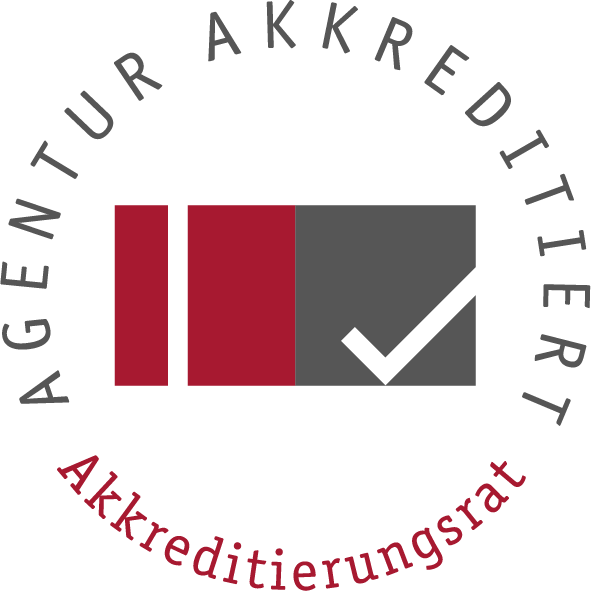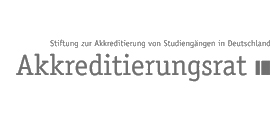Hinweis: Auf dieser Seite finden Sie Informationen zum alten Akkreditierungsrecht bis 31.12.2017.
Accreditation of agencies
Object | Assessment | Obligation
Objects of the Accreditation Process
In order to undertake the procedures for programme accreditation and/or system accreditation, and thereby to be allowed to award the Accreditation Council’s quality seal for study programmes and higher education internal quality management systems, an agency itself must undergo an accreditation procedure. Accreditations of agencies are carried out by the Accreditation Council and i.a. focus on an agency’s understanding of quality, its structures and procedures, as well as the independence of the organisation. Particular requirements are also made of the agency’s internal quality assurance and the transparency of its procedures and decisions. By means of regular accreditation and reaccreditation of agencies, the Accreditation Council ensures that study programmes and higher education internal quality assurance systems are accredited based upon reliable, comparable, transparent and internationally-recognised criteria and standards.&nb
Successfully accredited agencies carries the foundation's quality seal Agentur akkreditiert
Assessment
The procedure for the accreditation of an agency is a multistage procedure which is based upon the principle of peer review. If an agency submits an application for ac-creditation to the Accreditation Council, a preliminary survey will first be conducted in order to establish whether a successful accreditation would not be possible at all because, for example, there has been a failure to comply with fundamental legal guidelines. If the preliminary survey does not reveal any underlying concerns, a decision from the Accreditation Council will formally start the accreditation procedure. The agency which is making the application will then be required to provide a detailed rationale for its application.
The Accreditation Council will appoint a group of experts for reviewing the agency according to the criteria for the accreditation of agencies. The group of experts as a rule consists of five members: a member of the Accreditation Council as well as representatives of the relevant interest groups. These include particularly the sciences, the students and practitioners from the profession. Two members should be from abroad.
The agency is evaluated in accordance with the rules for the accreditation of agencies and this involves the following procedures:
- an analysis of the rationale for the application,
- a progress report from the agency providing information on its work during the accreditation period which has expired,
- an on-site visit to the agency which includes participation in a meeting with the decision-making committee responsible for the final decision on accreditation applications,
- separate interviews with the management of the agency, its employees, a selection of experts, as well as higher education representatives (lecturers and students) who have already passed through the agency’s accreditation procedures,
- participation in an on-site visit by the agency during a quality assurance procedure (only during the initial accreditation of an agency), as well as
- Accreditation Council evaluation since the previous accreditation, unless this is an initial accreditation.
Finally, the experts will prepare a report with a recommendation on the accreditation of the agency. Based upon this, the Accreditation Council will decide upon an accreditation for the respective agency, an accreditation with conditions, a suspension, or a refusal of accreditation.
Following the procedure, the Accreditation Council will publish its decision, the rationale for the application and the experts’ report, as well as the agency’s statement, in its register of approved agencies.
Obligation
An agency must have accreditation in order to be licensed to award the Accreditation Council quality seal by undertaking the procedures for programme accreditation and/or system accreditation.
In addition to this, the agencies and the Accreditation Council conclude an agreement to establish the mutual rights and obligations. In this agreement, the agencies declare themselves willing to comply with the resolutions of the Accreditation Council, as well as to take into account the Common Structural Guidelines of the Länder (states) established by the Standing Conference of the Ministers of Education and Cultural Affairs of the Länder.
File Model agreement between the Foundation for the Accreditation of Study Programmes in Germany and the agencies of 15.02.2005 as amended on 28.06.2012
Accreditations always have a time limitation; the accreditation of an agency is usually valid for a period of five years.
Detailed information on procedure and requirements are available in the rules for the accreditation of agencies.
File Rules for the accreditation of agencies as of 23.09.2016
The Procedures Manual details the essential procedural steps and actions which are to be expected during the accreditation procedure.
